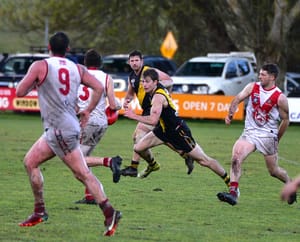A proposal to build short-stay tourist cabins on a 3.2-hectare property outside of Fish Creek has been narrowly rejected by South Gippsland Shire Council at their August planning meeting, reigniting debate over housing shortages, land zoning, and the region’s tourism economy.
The proposed development at 252 Soldiers Road included five new two-bedroom cabins alongside an existing five-bedroom dwelling, aiming to accommodate up to 30 guests. Council officers had recommended approval—subject to over 45 conditions—but after a 30-minute debate, councillors voted 5-4 against issuing a planning permit.
Councillor Scott Rae led the opposition, warning the development would set a “very detrimental precedent” for farming zones.
“What a sad day for the agricultural community,” Rae said, calling it a “horrible mistake” that could “open the floodgates.”
His concerns were echoed by Cr Nathan Hersey, who called the process “an absolute joke of a way to run an organisation from a strategic perspective.”
Hersey appeared to be in favour of the Council being taken to VCAT over the decision, suggesting it would force the issue on Council’s zoning problems.
Yet others argued the need for action on South Gippsland’s critical accommodation shortfall—particularly for tourists and the expected 1,600 workers tied to upcoming renewable energy and decommissioning projects.
Cr John Kennedy said the proposal had merit due to a lack of accommodation in South Gippsland. He addressed the Council’s consistent rejection of similar developments over the previous decades: “developments that come along and want to do things and they’re being knocked on the head… Not often does someone come along with money and want to do developments.”
Cr Clare Williams pointed to the economic necessity of increased short-stay accommodation, noting, “right now I could count the amount of accommodation options on two hands.” Williams noted that South Gippsland has 4,000 businesses that need the support of 1.2 million visitors annually.
The block in question, while zoned for farming, is among 17 similarly sized lots, many with houses, that are not currently used for agriculture. Councillors acknowledged that since 2003, the area has largely lost its agricultural viability, raising questions about the relevance of existing zoning.
“It’s a tricky one,” said Cr Sarah Gilligan. “It highlights some work we need to do in our planning scheme… it’s the Prom Coast area, it is where we do want to encourage smaller accommodation and we do have a lack of it, we know that…”
Yet despite initially supporting the proposal, Gilligan cast the deciding vote against it, swayed by broader zoning concerns.
Under planning rules, the applicant can now appeal to the Victorian Civil and Administrative Tribunal (VCAT). Should they do so, council could face legal costs exceeding $20,000. Cara Schultz






